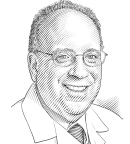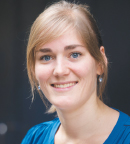Guest Editor

Stuart M. Lichtman, MD
Geriatrics for the Oncologist is guest edited by Stuart M. Lichtman, MD, and developed in collaboration with the International Society of Geriatric Oncology (SIOG). Dr. Lichtman is an Attending Physician at Memorial Sloan Kettering Cancer Center, Commack, New York, and Professor of Medicine at Weill Cornell Medical College, New York. He is also President of SIOG. For more information about geriatric oncology, visit www.siog.org and the ASCO Geriatric Oncology website (www.asco.org/practice-guidelines/cancer-care-initiatives/geriatric-oncology/geriatric-oncology-resources).
In the upcoming decades, the number of older adults with cancer will drastically increase due to aging of Western societies.1 The risk of cancer strongly increases with age. Consequently, all future oncologists will be exposed to the challenges of caring for this heterogeneous population. Older adults with cancer have an increased risk of treatment toxicity and postoperative complications leading to a worse outcome.2-4 In addition, caring for older adults with cancer is often complicated by multiple geriatric problems, including comorbidities, polypharmacy, malnutrition, functional and cognitive impairment, geriatric syndromes, psychosocial distress, and spiritual issues.5,6
The evidence base for treatment of older patients with cancer is limited, as older patients are frequently excluded from randomized clinical trials.7 Hence, we advocate that all future oncologists and researchers need to be educated on assessing and caring for the needs of this complex and growing population of patients.
Young SIOG
In 2013, the Young SIOG committee was established as a committee of the International Society of Geriatric Oncology (SIOG). The committee targets all clinicians and researchers who are working with older adults with cancer (in all specialties), who are in training, or who have recently started working in clinical practice. The governance consists of seven young SIOG members from all around the world, and the Chair is a member of the SIOG Board, thereby giving Young SIOG a vote within the SIOG Board.
Young SIOG has three major goals: (1) To improve education in research and clinical practice for young researchers and clinicians in all disciplines that deal with the treatment of older cancer patients; (2) To establish a network of young researchers and clinicians in the geriatric oncology field; and (3) To create a platform of young researchers to liaise and facilitate mentorship.
Achievements
In the past few years, Young SIOG has become an established committee within SIOG. The group now has around 80 members from all continents. All SIOG committees and task forces now reserve one place for a Young SIOG member, to enable young members to gain experience and participate in the development of SIOG recommendations. The committee organizes a mentorship session and a poster walk during the SIOG Annual Meeting. Furthermore, SIOG installed the annual “Young SIOG award,” which is granted to a young SIOG member during the meeting.

Young SIOG has become an established committee within SIOG, with around 80 members from all continents. Young SIOG aims to further expand its activities by reaching out to other societies and increase its visibility.— Nienke A. de Glas, MD, PhD
Tweet this quote
Young SIOG is active on social media, including Facebook, LinkedIn, and Twitter. For example, a monthly online Journal Club is organized, in which interesting papers in geriatric oncology are discussed. Also, an annual survey among young SIOG members is circulated, to map the wishes and needs of its members with regard to education, information, and events.
Future Challenges
and Opportunities
Young SIOG aims to further expand its activities by reaching out to other societies and increase its visibility. The committee is currently working on an overview of clinical and research opportunities around the world, to improve international exchange and provide its members with opportunities for mentorship. As a next step, the committee aims to facilitate funding for a clinical and a research fellowship, which will be awarded to one young researcher and one young clinician each year.
For more information on Young SIOG, visit http://www.siog.org/content/young-siog-interest-group, or join us on Facebook or LinkedIn. ■
Disclosure: Dr. de Glas reported no potential conflicts of interest.
References
1. Jemal A, Bray F, Center MM, et al: Global cancer statistics. CA Cancer J Clin 61:69-90, 2011.
6. Balducci L: Aging, frailty, and chemotherapy. Cancer Control 14:7-12, 2007.

